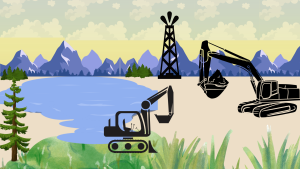On Sunday, Nov. 28 the online whistle blowing-site WikiLeaks made history, publishing an astonishing 251,287 pages of confidential documents concerning U.S. government activities and correspondence from the last 44 years. What is truly astounding, though, is not the sheer number of these released cables (an incredible feat on its own), but the fact that these documents managed to be released at all. While the immediate fallout from this unfathomable breach in government security plays itself out in the 24-hour news cycle, the truth is that the effects of this leak will be felt years and even decades from now.
There is no question that the United States Government never intended nor thought for a second that these classified documents would see the light of day. What WikiLeaks has pulled off is no less than the hijacking of the world’s foremost economic and military power. Everything, whether intimate conversations and gossip about the lives and sex habits of foreign leaders or private Saudi calls for the U.S. to make war with Iran, has been revealed in the quarter million documents released this past week. The only leak even comparable would be the release of the nearly 400,000 classified documents, dubbed “The Iraq War Logs,” this October by—you guessed it—WikiLeaks. Those documents aimed the spotlight on the Bush administration’s Iraq War policy that ignored multiple instances of human rights violations by U.S. troops and revealed cutthroat practices and deals unworthy of a nation that prides itself on diplomacy through “morality.”
That Assange and the online site managed to get their hands on over a half million classified U.S. documents that none have before is worthy of more than a degree of attention— and respect. Assange vehemently denies allegations that he is jeopardizing the safety of U.S. troops abroad and insists that his aims are to enlighten the public on the sometimes unethical and downright deplorable conduct of the U.S. government.
Depending on your point of view, WikiLeaks has either furthered the cause of democracy in the world and its founder ought to be applauded for his bravery, or the site has rendered useless years of diplomatic tongue wagging and hand wringing in one fell swoop and Assange should be hunted down, in the words of Sarah Palin, “like al-Qaida.” New York Congressman Peter King, the ranking Republican on Homeland Security, agrees, saying that WikiLeaks “is engaged in terrorist activity” and should be treated as a terrorist organization.
Yes, some of the documents WikiLeaks has released certainly have the potential to bring harm, or at least embarrassment, to American diplomats and troops abroad, but so do the years of bad U.S. foreign policy that saw us get entangled in two unethical wars and become involved with a number of unsavory characters, often inside our own borders.
Yes, many of the released documents deal with back and forth gossip between U.S. officials on the sex lives and cold personalities of world leaders; one diplomat calls German Chancellor Angela Merkel risk averse and “rarely creative,” while another calls Italian Prime Minister Silvio Berlusconi a party animal, “physically and politically weak,” and even “feckless, vain and ineffective as a modern European leader.”
But one has to ask the question: is it WikiLeaks’ fault for releasing these classified documents or can we perhaps come to the consensus that the actual fault lies with the U.S. officials in question, who all too often come off like jealous schoolgirls. The truth is that Assange, who has gone into hiding in the wake of recent death threats, should be heralded for his work, not attacked. He reminds one of the famous journalists in Steig Larsson’s enormously popular “Millennium Trilogy;” a reallife Mikael Blomkvist who in the face of enormous personal and political pressure has nevertheless done what he feels is right—bringing the truth to the world.







Be First to Comment